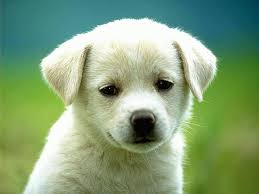记忆方法
将“animal”分解为两部分:“ani”可以联想到“象”(elephant),而“mal”则可以联想到“瘤”(tumor)。想象一只“象”因为得了一个“瘤”而变得特别(动物是唯一能被称为“动物”的生物,瘤则是“特别”的象征)。通过这种奇特的联想,可以更容易地记住“animal”这个词的意思。
以上内容由AI生成, 仅供参考和借鉴
中文词源
animal 动物
来自词根anim, 呼吸,风,灵魂,有生命。
英语词源
- animal
-
animal: [14] Etymologically, an animal is a being which breathes (compare DEER). Its immediate source was the Latin adjective animālis ‘having a soul’, a derivative of the noun anima ‘breath, soul’ (which also gave English the verb and adjective animate [15]). Anima is a member of a set of related words in which the notions of ‘breath, wind’ and ‘spirit, life’ are intimately connected: for instance, Greek ánemos ‘wind’ (possible source of English anemone), Latin animus ‘spirit, mind, courage, anger’ (source of English animosity [15] and animus [19]), Sanskrit ániti ‘breathe’, Old English ōthian ‘breathe’, Swedish anda ‘breath, spirit’, and Gothic usanan ‘breathe out’.
The ‘breath’ sense is presumably primary, the ‘spirit, life’ sense a metaphorical extension of it.
=> anemone, animate, animosity, animus - animal (n.)
- early 14c. (but rare before c. 1600, and not in KJV, 1611), "any living creature" (including humans), from Latin animale "living being, being which breathes," neuter of animalis "animate, living; of the air," from anima "breath, soul; a current of air" (see animus, and compare deer). Drove out the older beast in common usage. Used of brutish humans from 1580s.
- animal (adj.)
- late 14c., from animal (n.). Animal rights is attested from 1879; animal liberation from 1973. Animal magnetism originally (1784) referred to mesmerism.
权威例句
- 1. There was no doubting the animal magnetism of the man.
- 毫无疑问,这个男人身上透着一种野性魅力。
- 2. You feel an animal panic to run and hide.
- 你会感到一种本能的恐惧而想要去逃避。
- 3. You're quite a party animal aren't you, out there every night.
- 你就是为派对而生的,不是吗,每天晚上你都去参加派对。
- 4. The hunter knelt beside the animal carcass and commenced to skin it.
- 猎人跪在动物尸体旁边,开始剥皮。
- 5. We were amused to see how assiduously the animal groomed its fur.
- 看着这只动物如此认真地梳理自己的毛,我们被逗乐了。
